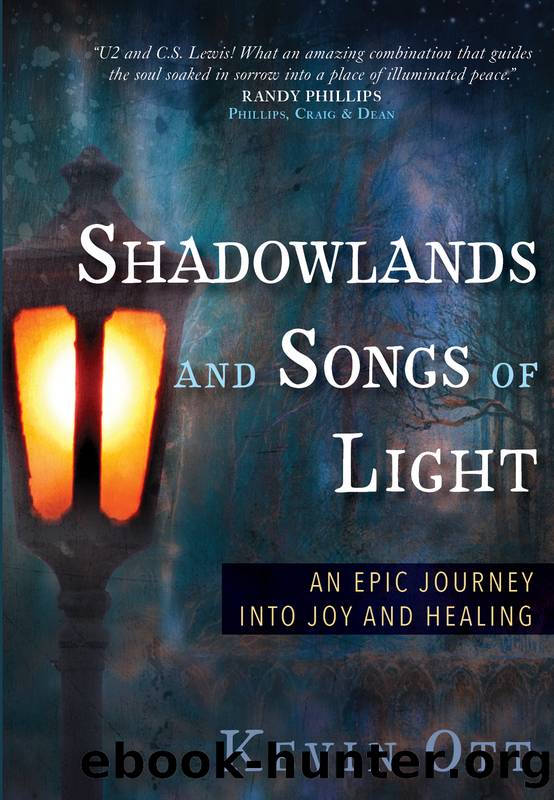Shadowlands and Songs of Light by Kevin Ott

Author:Kevin Ott
Language: eng
Format: epub
Publisher: BroadStreet Publishing Group, LLC
Published: 2016-01-15T00:00:00+00:00
Of course, Ockhamâs concerns about the churchâs use of Greek philosophy were understandable too. Thomas Aquinas and his realism crowd, along with many other Christians of his day, were absorbing Greek philosophy and finding ways to synthesize it into the teaching of the Bible. Besides provoking misguided reactions, like Ockhamâs awful nominalism, the Christian scholars of that period were beginning to isolate philosophical knowledge as something separate from sacred knowledgeâsomething that could be developed to the fullness of wisdom without any help from the Word and the Holy Spirit.
They were beginning to elevate human reason.
Along with all this, the Protestant Reformation came, and, in some ways, functioned as a black swan eventâan unexpected explosion and rearrangement of the spiritual terrain.
All of these things opened the gates for an ambitious new project that none of these Christian scholars intended to kickstart: the methodical, centuries-long construction of a secular humanist civilization. The massive scaffolding of our secular age is one of the most impressive projects ever accomplished in human history. Itâs right up there with the Tower of Babel.
In fact, the construction of exclusive humanism, as Taylor proves in A Secular Age,9 was not a subtraction story as many atheists claim today. Exclusive humanism was not the inevitable course of humanity that finally happened after we removed our silly religious superstitions. Thatâs the subtraction myth.
History shows us that it was an addition storyâa hugely ambitious project led by a lineage of determined individuals who navigated a long, zigzagging path of history. Once Christian theologians mistakenly abandoned important theological ground and moved away from a sacramental mind-set, the wolves began to stream in. Most of these wolves were apostates (former Christians who left the faith and actively opposed it)âmen who zealously yearned to push the world away from a God-centered order.
In the book Apostate: The Men Who Destroyed the Christian West, author Kevin Swanson provides a chronological list of some of these men. It reads like a genealogyâa rough sketch of exclusive humanismâs family tree. It tells a spellbinding tale of how humanity patiently built its new Tower of Babel, the great structure of secular humanism that stands today, one stone at a time.
Every major figure involved in the project had one common thread: they all elevated the authority of human reason above God. Although itâs beyond the scope of this book to unpack in detail what Swanson writes about each man, the chronological list in his table of contents10 is telling:
⢠René Descartes (1596â1650), philosophy
⢠John Locke (1632â1704), theology
⢠Jean-Jacques Rousseau (1712â1778), society planning
⢠Jeremy Bentham (1748â1832), John Stuart Mills (1806â1873, a disciple of Bentham), and Bertrand Russell (1872â1970, the godson of Mills), ethics and modern philosophy
⢠Ralph Waldo Emerson (1803â1882), the spiritual formation of the person
⢠Karl Marx (1818â1883), political theory
⢠Friedrich Nietzsche (1844â1900), psychology
⢠Charles Darwin (1809â1882), origin science
⢠John Dewey (1859â1952), education
⢠Jean-Paul Sartre (1905â1980), modern philosophy and culture
Swansonâs list excludes some crucial names (for example, Sigmund Freud) because his focus was on apostatesâformer Christians. But even just the
Download
This site does not store any files on its server. We only index and link to content provided by other sites. Please contact the content providers to delete copyright contents if any and email us, we'll remove relevant links or contents immediately.
Fangirl by Rainbow Rowell(9228)
How to Bang a Billionaire by Alexis Hall(8144)
Wonder by R. J. Palacio(8097)
The Space Between by Michelle L. Teichman(6927)
The Thirst by Nesbo Jo(6925)
Assassin’s Fate by Robin Hobb(6197)
Wiseguy by Nicholas Pileggi(5767)
The Night Circus by Erin Morgenstern(5215)
Paper Towns by Green John(5175)
The Kite Runner by Khaled Hosseini(5163)
Bittersweet (True North #1) by Sarina Bowen(4842)
Gerald's Game by Stephen King(4640)
Too Much and Not the Mood by Durga Chew-Bose(4337)
Pillow Thoughts by Courtney Peppernell(4271)
Goodbye Paradise(3798)
Twelve Days of Christmas by Debbie Macomber(3559)
Good by S. Walden(3545)
The Rosie Effect by Graeme Simsion(3459)
The Cellar by Natasha Preston(3333)
